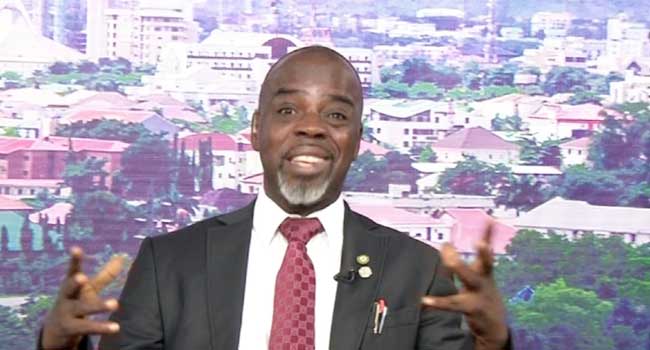We are going to Open a Black Book to name and shame Judges that give indefensible Judgements – NBA SPIDEL Chairman
A former first vice president of the Nigerian Bar Association (NBA), Barrister John Aikpokpo-Martins, emerged as the new chairman NBA-Section on Public Interest and Development Law (SPIDEL) in the 2023 elections held on Friday, June 23. In this interview, he speaks on the judiciary, disciplinary mechanisms for judges and lawyers and sundry issues.
All eyes are now on the judiciary, can we trust the judiciary?
We have been talking in the past; it is time to think outside the box and start to take action. We should start to name and shame erring judges. We are going to open a black book. It is not imperative that the judge or judgment must be correct, when any judgment is delivered it should be in good faith because no one is infallible. As lawyers, we know the minimum expected.
So, when a judge gives a judgment which is indefensible in law, it shows that there is undue influence or corruption. We will name such judges in public. If the judge believes that he has been wrongfully accused in public, we will challenge him to take us to court.
Going forward, we are going to open a black book for judges who seem to be giving judgments that are not supported by logic, law or facts.
Still on these dangerous judgments, how do you want to do this without the involvement of the National Judicial Council (NJC)?
We don’t have to mince words. In the last three years can you give me the name of a judge that has been disciplined may be by way of dismissal, or compulsory retirement. It is difficult to find such. From the last briefing by the NJC secretary, almost all petitions were thrown away.
The most annoying aspect was a judge who was accused of misdemeanour and he was about to retire. The next thing the NJC will say was that they have no jurisdiction over the matter because the judge has retired.
Another argument is that the judge is no longer a lawyer so the LPDC cannot deal with the case. So, you now find a situation where judges who are at the twilight of their career, one year to their retirement, go rough and they do all kinds of things so that before investigations will start, they will retire and be immune from investigation.
There is even a judgment that before a judge is tried, the NJC must, first of all, do their investigations. So rough judges are going scot-free, without punishment. So maybe when we start to name and shame may be NJC will now start to know that something is wrong.
What then is your take on the disciplinary mechanism in the judiciary?
The disciplinary mechanism in the judiciary has broken down; let no one tell you any story. The disciplinary process at the bar, that is the LPDC, is not working.
In this profession, there are two disciplinary provisions – LPDC for lawyers and NJC for judges. Both of them are not working and we are having backlash from the public. Citizens no longer have trust in going to court and if they no longer have trust in court then who are we? We depend on trust in the legal system so if there is no trust in the legal system, we will go hungry then the system and fabric that hold the society together will break down and there will be anarchy.
So, there is every reason to start taking decisive actions against the type of things that we see in the profession, not just the judiciary.
Do you agree with the suggestion that after NJC has taken its decision against any erring judge, they should be charged to court to face the criminal process?
That is the law and there is no person above the law. If the law has provided that any person that does so and so should be charged with a criminal offence. One thing you must realize is that NJC does not handle criminal matters. NJC investigates ethical matters.
Still, you can have a situation where both criminal and ethical issues are combined. So, the first thing is that immediately the NJC finds a judge guilty, which is a prima facie case that the judge has a case to answer.
Judges were respected before but now the wrongdoer will even dare you to go to court. What is the solution?
The greatest problem with the judiciary is the appointment process. The appointment process is very porous. No matter how you tinker with the law, the law is not the issue but Nigerians want to beat the law; Nigerians derive pleasure in how to beat the law.
The NJC has guidelines but it follows their guidelines for the process to legitimize the names they are going to throw up which they know from the beginning. The appointment process is the biggest problem of the judiciary, so some people say that let us go and amend the constitution.
I do not believe that the constitutional amendment will make any change because the people themselves are the problem.














